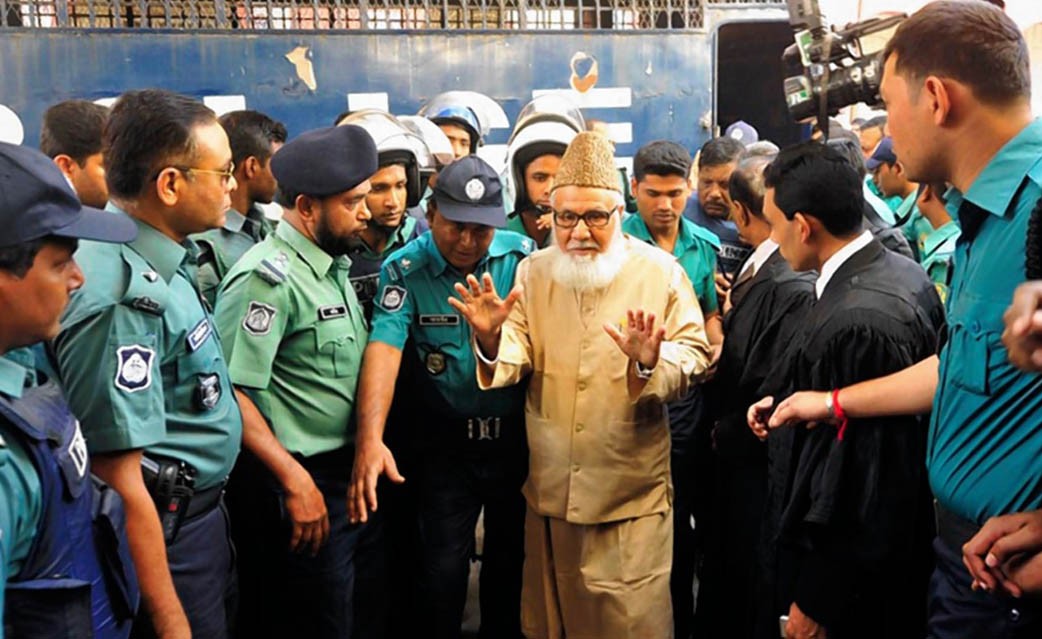
Pakistan must resolve internal conflicts through dialogue, trust, mutual respect, and peaceful means

A few days ago as I was browsing the television, I came across a rather interesting show on a news channel. The erudite anchor of the programme was arguing that the Jamaat-e-Islami leaders who had been executed in Bangladesh should be given the Nishan-e-Pakistan. I have never seen a more drastic distortion of history and despicable commentary in my life.
The host was claiming that the Jamaat-e-Islami people had shown their ‘loyalty’ to Pakistan by not asking for forgiveness for their actions. He eulogised the executed people by noting that even when they could save their lives by asking for forgiveness, they were adamant that their actions were just and in the cause of Pakistan. For this extreme sense of loyalty the anchor pontificated they should be given Pakistan’s highest award -- the Nishan-e-Pakistan.
As a Pakistani, I condemn attempts of calling criminals patriotic citizens of Pakistan and whitewashing their actions as undertaken for the love of the country.
All of the people executed after their conviction in the war crimes tribunal constituted by the government of Bangladesh were sentenced for heinous crimes, ranging from arson and rape, to homicide and mass murder. These charges were not casual or limited in nature, but were a result of systematic planning and execution over a considerable period of time. For example, Abdul Quader Molla, executed on December 12, 2013, was hanged for his involvement in the murder of a civilian, Pallab, the killing of Meherunnesa and her associates, his involvement in the killing of Khandoker Abu Taleb, and for his participation in the massacre at the Alubdi village where 300-350 unarmed civilians were mercilessly killed.
Similarly, Kamaruzzaman who was hanged on April 11, 2015, was charged for heinous crimes against humanity. As the leader of the Al-Badr militia, Kamaruzzaman led the capture of Badiuzzaman, son of Fazlul Haque of Kalinagar at Nalitabari in Sherpur, from Ramnagar. Later, Badiuzzaman was tortured and shot dead on the road at Ahammadnagar village and his body was thrown in the river. Led by Kamaruzzaman, the Al Badr also captured Golam Mostafa on August 23, 1971, and later he was also found dead. He was also involved in the killing of eight civilians in Chawkbazar at Sherpur, among other attacks on civilians during the war.
People who have killed unarmed civilians are simply criminals, and hiding their repugnant actions under the garb of their loyalty to Pakistan is repulsive to me as a Pakistani.
The learned anchor of course did not mention at all what these persons did. His whole focus was on the argument that since these people committed these acts "for the love of Pakistan" they must be honoured by the government of Pakistan. As far as I am concerned, I do not think that indulging in mass murder is, or could be, in any way for the love of Pakistan. In fact, it were actions like these which led to the alienation of our Bengali brethren -- where mind you, 80 per cent of our citizens were Muslims.
The attitude of the television anchor was the same prejudiced, hypocritical and deceptive which led to the vivisection of our country in 1971 and which is still miring our country in countless problems. While there is no denying that the Mukthi Bahini also indulged in crimes, the reality is that a number of people also committed crimes in the name of Pakistan. Rather than disassociating ourselves from such criminals, the reckless anchor was advising the nation to embrace them. His outlook towards the whole incident clearly shows prejudice towards Bengalis, which still persists in Pakistan, and his inability to accept the wrongs committed in the name of Pakistan.
The time has come to call a spade a spade. Wrongs were committed on both sides during the Bangladesh war, but we must own up mistakes on our own side, condemn undue violence done in the name of Pakistan, and begin to heal the wounds caused by the conflict. Let us not join the ranks of the bigoted anchor, but join the ranks of Lt. Gen (Ret) Sahibzada Yaqub Khan, who was the Governor and General Officer Commanding in East Pakistan in March 1971 (and later an ambassador and foreign minister), who resigned in protest since he could not permit the killing of his own countrymen by its own armed forces. Pakistan again has several internal conflicts, and we must resolve them through dialogue, trust, mutual respect, and through peaceful means within Pakistan. Let us not repeat 1971.